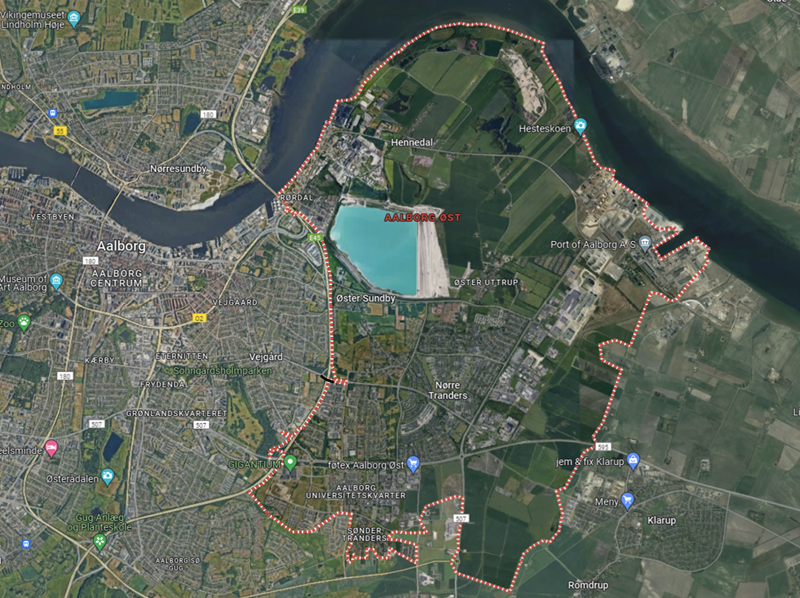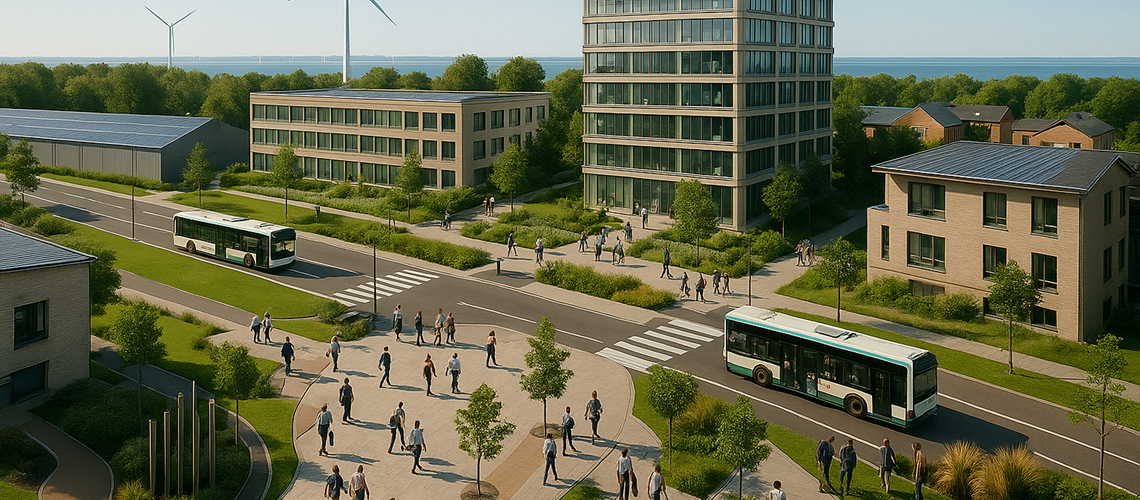Local Energy Balance of Aalborg East
The aim of FLEXPOSTS (FLEXible energy POSitivity districTS) is to develop effective and replicable strategies to enhance the process of establishing Positive Energy Districts (PEDs).
Work Package 5 investigates how a PED can be established in the demo site Aalborg East in Denmark. The aim of this report is to carry out an assessment of the current energy balance in Aalborg East (D5.1), showing energy flows in different energy sectors.
Modelling of current energy system was done in Energy Plan, investigating the possibility of using the concept of Positive Energy Districts in the development of future energy system of Aalborg East.
This report analysing the local energy balance in Aalborg East (D5,1) is the first report in WP5 on implementing a PED in Aalborg East.
The energy balance offers a detailed overview of the current energy system in Aalborg East. This overview provides the baseline for developing energy scenarios for how energy will be produced, distributed, and consumed in Aalborg East in the future.
The energy balance of Aalborg East provides an important starting point for developing strategies for promoting the sustainable energy transition and developing Aalborg East into a Positive Energy District.
Area passport
An area passport is a detailed profile of the energy balance of Aalborg East. The passport combines data on energy consumption and production across various sectors with demographic data.
The passport provides a comprehensive overview of Aalborg Easts energy balance, supporting the future energy planning and political decision-making for the area.
Figures and illustrations from the area passport ↓




Report: Barriers and potentials for implementing PEDs in Denmark
The second report analyses the potentials and barriers for implementing PEDs in Denmark and in Aalborg East.
The report concludes that there are a number of regulatory, structural, and technical barriers for implementing PEDs in Denmark.
The main barrier for implementing PEDs in Denmark is that the concept is not well-aligned with existing organizational structures and practices. It is therefore important that the PED concept is reconceptualized to fit to the Danish context, if it is to play any meaningful role in supporting wider policy agendas of achieving CO2 neutrality and transition to renewable energies.
Engaging stakeholders as a driver of positive energy districts
Engaging stakeholders in the development of Positive Energy Districts (PEDs) is key to fostering inclusive, resilient, and energy-efficient urban spaces. The aim of this report is to map and analyse the existing partnerships and networks that exist in the Danish case of Aalborg East. The report builds on semi-structured interviews with the key stakeholders in the area.
IN the report, we conclude that the stakeholders in general have amenable views towards Positive Energy Districts; they express the most interest in the potential of PEDs to form the basis of new networks and a platform for knowledge-sharing that can assist in establishing new business relations and help frame the work that is being to promote a sustainable transition.
We also found great interest in a general PED certification as it would provide a more approachable framework as well as new branding opportunities for the stakeholders.
Transforming Aalborg East: A Systemic Path to Positive Energy Districts
This report presents a comprehensive analysis of the potential transformation of the Aalborg East district in Denmark into a Positive Energy District (PED). The aim of the study was to identify sustainable, equitable, and technically feasible strategies for transitioning toward climate-neutral urban environments through the development of various energy scenarios. The analysis included three scenarios, ranging from one focused solely on households, to local consumption including public buildings and industrial heating, and finally the most ambitious scenario encompassing all sectors, including industry and transport, in alignment with national decarbonization goals.
Using the EnergyPLAN tool and based on principles of fair energy distribution, the study assessed the energy needs and renewable energy production potential in Aalborg East by 2045. The results showed that utilizing renewable energy sources beyond the district’s geographical boundaries, thus reducing the need for local capacity and optimizing energy exchange, is the most viable approach.
The report emphasizes the importance of a systemic approach to PED planning, warning against the risks of creating energy “islands” that may lead to suboptimal solutions. Instead, PEDs should be integrated into broader energy networks as integrated components of national energy transition strategies. Aalborg East is presented as an example of a district that, while unable to meet all its energy needs independently, can significantly contribute to climate goals through the maximum use of locally available resources, smart technologies, and innovative business models.
Implementation Strategy
This implementation strategy has been prepared as part of the FLEXPOSTS research project, financed by Innovation Fund Denmark under the JPI Urban Europe programme 2022-2025.
In the project an interdisciplinary group of researchers from Department of Sustainable and Planning at Aalborg University has collaborated with Green Hub Denmark on developing an energy scenario and implementation strategy for realising a PED in Aalborg East by 2045.

